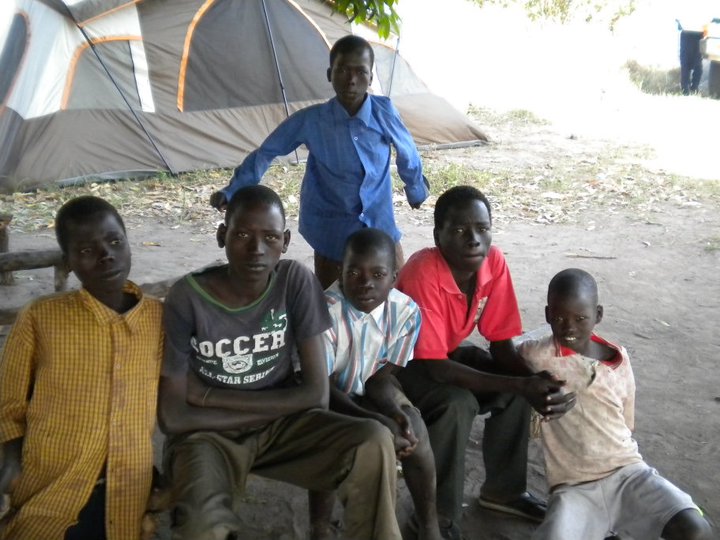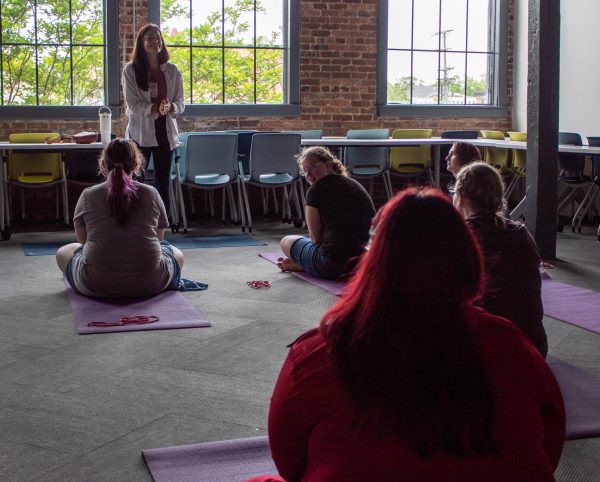South Sudanese vote to secede from country
March 3, 2011
Sudan is a country of many contradictions. It is a bridge between the Arab world and the rest of the African continent. The North is primarily Muslim and relatively modernized, with a thriving oil export operation.
But in the predominately Christian and animist South the paved roads end, the landscape is dotted with bombed and depleted schoolhouses and most of the residents live in poverty with few opportunities for better lives.
Sudan has been immersed in civil wars since its independence from the British in 1956. The wars claimed millions of lives and nearly wiped out an entire generation of South Sudanese before a peace agreement was signed in 2005. On Jan. 9, 2011 South Sudanese voters chose to secede from the country. The secession is set to take place in July.
Former UNA student Nikki Davis recently returned from a mission trip to South Sudan, during which she helped to build churches, clear land and help the children in the proposed capital of Juba and the town of Kopoeta.
According to Davis, support for the secession was almost universal, and this sentiment was reflected in the final ballot count, in which 98.83 percent of voters supported the secession.
“A lot of people in the South want their own country, but they don’t want any vengeance,” said Davis. “People are welcoming and kind even after going through such a horrible war.”
South Sudan’s primary export is oil, but it is a landlocked region cut off from shipping channels. The two main ports available will be located in North Sudan and in neighboring Kenya, confronting the new country with the choice of who to align with.
The long protracted civil wars have forced many southern Sudanese residents into neighboring Kenya. Many Kenyan residents are from South Sudan. Dr. Francis Koti, associate professor of geography at UNA, was in high school and college in Kenya during the Second Sudanese Civil War that lasted from 1983 to 2005. He said a lot of refugees from South Sudan fled to Kenya and still live there today.
“Perhaps there is going to be more integration into the East African community than with the northern neighbors,” said Koti. “Kenya for example, has already shown support for the secession by volunteering human resource capital to boost institutional capacity for the new nation. They have played a central role since the referendum.”
Whether or not South Sudan, an area with virtually no infrastructure and high illiteracy rates, can sustain itself independently is a question only time will answer.
“The people there are really motivated, but their resources have been taken from them,” said Davis. “They’ll be able to do it once they get their resources back, but they’re going to need a little help.”
The help could come from a variety of countries, but those interested in exploiting the area’s natural resources may donate money and labor in exchange for oil, and not necessarily at a fair exchange rate. Nigerian native Ralph Akalonu, vice president of the SGA Senate, hopes the leaders of South Sudan will use the oil revenue appropriately.
“If there is a marketable resource in a country, greed tends to come in,” said Akalonu. “I hope they use the money to build their country, and I think there should be a collaborative effort between industrial nations to genuinely help them, but not for selfish reasons.”
Akalonu said that South Sudan’s relationship with the North is not going to end because oil-rich nations have to share revenue in order to operate efficiently. The new nation will be forced to deal civilly with the country it has tried so hard to break away from.
“How are they going to overcome the animosity with the North?” said Koti. “It makes you ask what the contentious issue was in the first place. Was it religion, ethnicity, control of natural resources or just outright political and socio-economic marginalization of the South by the Khartoum government? And has it really been resolved? Africa’s newest nation will require forward-looking minds and strong institutions if they must overcome their challenges and become competitive regionally and globally. Very deep-seated anger exists there.”











